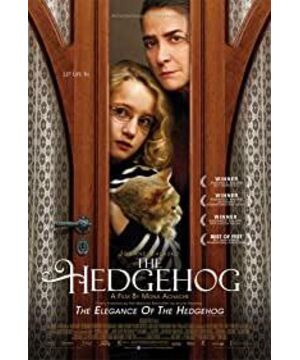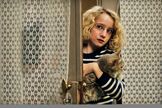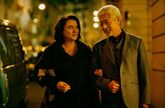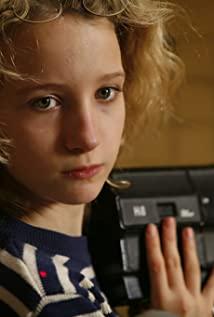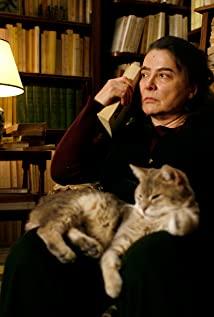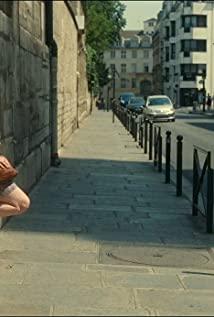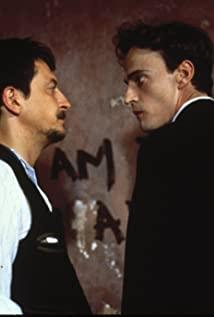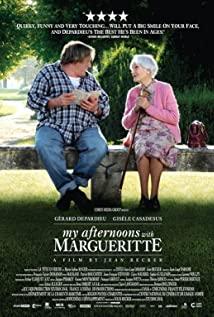"I know that the end of my life is the goldfish bowl." The movie "The Grace of the Hedgehog" tells the story of a wealthy genius girl, Paloma, who sees through the absurdity of life and decides to commit suicide on her 12th birthday. Before that, she met Heney, the concierge lady who pretended to be vulgar, but had a study hidden in her heart. The two came on a life journey to discover love and death. "The Grace of the Hedgehog" is based on the novel of the same name by French philosophy professor Miuriete Barbery. From the perspective of the value of this film, first, the subject matter discussed in the original work determines the height of the film. Compared with the novel, the film has no obvious breakthrough, and it can only be said that it has no merits. Second, the film is director Mona Achache's 28-year-old debut. For the director, this film is more like she hopes to give an answer to her attitude towards life before the age of 30. Therefore, in terms of expression skills, the film does not have a distinct personal style. But in this film, Japanese elements are ubiquitous. It can be said that the film was shot under the guidance of Japanese culture and ideology. This article intends to take this as a hole to spy on the cultural relationship between Japan and France. On the surface, Japanese culture is freely "running" in this film. First, the characters. There is a central character in the film, Ozu Gelang, who is from Japan. Mr. Ozu is the most special presence in the whole high-end residential area. He is polite, neat and sincere. He pays the cleaners four euros more per hour. Here, Mr. Ozu can be said to stand in the perspective of God and convey the mystery of life to the other two heroines. Second, objects. Japanese ornaments, stickers, books and manga fill the protagonist's room. Third, diet. Heni has always had the habit of tea and dark chocolate. The two completely different diets, which are marked by Japanese and French respectively, have become a woman's lifestyle in this film. On top of that, Mr. Ozu cooked the dumpling ramen himself the first time he ate with Henney. And the second time, Henney brought a dessert cake. The fusion of Japanese and French diet is extremely seconds. From these three points, we can clearly perceive the weight of Japanese culture in this film. At a deeper level, the Japanese concept of life and death guides the central ideology of the film. First, the shadows are born. At the beginning of the movie, Junichiro Tanizaki's "Praise of Shadows" is placed on Heni's table. This book praises "the beauty of the shadows" of the Japanese, that is, "beauty does not exist in objects, but in the ripples and shades of shadows produced by objects. And the movie actually conveys this attitude towards life. The reason why Henney was interested in this book was that she instinctively had a voice that she didn't need to pay attention to the vulgarity of appearance, and they were not unattractive. And she also agrees that she will blend with the book and have a subtle reaction, and that thing is called beauty. Second, die brilliantly. At the beginning of the film, Paloma said, "The most important thing is what a person is doing when he dies, and I am . It was proposed as early as the 1980s. The cause is a mental illness caused by the huge difference between the real Paris and the Paris they imagined by Japanese tourists in Paris. Symptoms manifest as nausea, insomnia, convulsions, and indescribable fear, and even lead to suicide. It can be seen that French culture is also a symbol of beauty in the hearts of Japanese people. Going back to "The Elegance of the Hedgehog", this very Japanese French film, Japanese culture is always just the beginning for this film. The greatest thing about this film is that it makes everyone who watches the film pick up the desire to read and find a meaning of their own life in it, which is really not easy. . It was proposed as early as the 1980s. The cause is a mental illness caused by the huge difference between the real Paris and the Paris they imagined by Japanese tourists in Paris. Symptoms manifest as nausea, insomnia, convulsions, and indescribable fear, and even lead to suicide. It can be seen that French culture is also a symbol of beauty in the hearts of Japanese people. Going back to "The Elegance of the Hedgehog", this very Japanese French film, Japanese culture is always just the beginning for this film. The greatest thing about this film is that it makes everyone who watches the film pick up the desire to read and find a meaning of their own life in it, which is really not easy. . It was proposed as early as the 1980s. The cause is a mental illness caused by the huge difference between the real Paris and the Paris they imagined by Japanese tourists in Paris. Symptoms manifest as nausea, insomnia, convulsions, and indescribable fear, and even lead to suicide. It can be seen that French culture is also a symbol of beauty in the hearts of Japanese people. Going back to "The Elegance of the Hedgehog", this very Japanese French film, Japanese culture is always just the beginning for this film. The greatest thing about this film is that it makes everyone who watches the film pick up the desire to read and find a meaning of their own life in it, which is really not easy. . It was proposed as early as the 1980s. The cause is a mental illness caused by the huge difference between the real Paris and the Paris they imagined by Japanese tourists in Paris. Symptoms manifest as nausea, insomnia, convulsions, and indescribable fear, and even lead to suicide. It can be seen that French culture is also a symbol of beauty in the hearts of Japanese people. Going back to "The Elegance of the Hedgehog", this very Japanese French film, Japanese culture is always just the beginning for this film. The greatest thing about this film is that it makes everyone who watches the film pick up the desire to read and find a meaning of their own life in it, which is really not easy.
View more about The Hedgehog reviews


